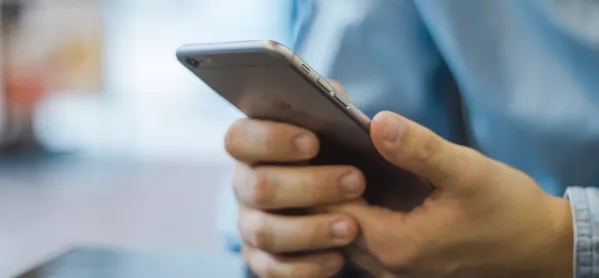Work emails can do serious damage to mental health, a teaching union has warned.
The EIS, Scotland’s biggest teaching union, fears that teachers and lecturers are increasingly expected to be “on call” outside their normal working hours, and that this is adding to already high stress levels.
It has published new advice on accessing work emails during non-working hours amid concern that increasing pressure to respond during personal time is contributing to an “excessive long-hours culture for teaching staff”.
The advice has been specifically prepared for lecturers within the union’s university lecturers’ association, but the EIS says it is also relevant to staff in other sectors.
General secretary Larry Flanagan said: “Advances in technology, such as the boom in the use of smartphones and other mobile devices have increased the pressure on employees to be constantly ‘on call’ and ready to respond to communications at extremely short notice. This is an added stressor on top of already high workloads, with serious implications for employees’ mental health and wellbeing.”
Mr Flanagan said that all employers should “take steps to protect employee mental health”. He added: “This should always include appropriate protocols to manage the workload created by out-of-hours email communications, in order to guarantee appropriate work-life balance for all staff.”
The EIS advice includes these points:
• “Dipping in” to your work emails whilst doing other activities outside working hours means that you are emotionally and mentally at work, even if you are physically elsewhere. This, over the long term, may affect your mental health or relationships.
• Doing work emails just before going to bed or before going to sleep is likely to adversely affect your sleep. If you find stopping doing your emails on your smartphone difficult then consider uninstalling the workplace email account from your personal smartphone or switching off notifications for work emails. Alternatively, leave your smartphone outside the bedroom overnight.
• Whilst email responses should be made within a reasonable and meaningful time frame, most responses do not need to be made during the same day.
• Time spent reading, writing, and reviewing emails is defined as working time as set out by the working time regulations. If you are only able to carry out your job by consistently working long hours (on emails) then you may need to discuss changing your workload with your employer.
• Care and consideration should be given as to whether an email is the appropriate medium to deal with the matter at hand. Matters that are likely to cause disappointment or dismay, for example, are best dealt in meetings. Likewise, do not feel you have to reply in kind to emails - you may choose to discuss it directly with the sender.




